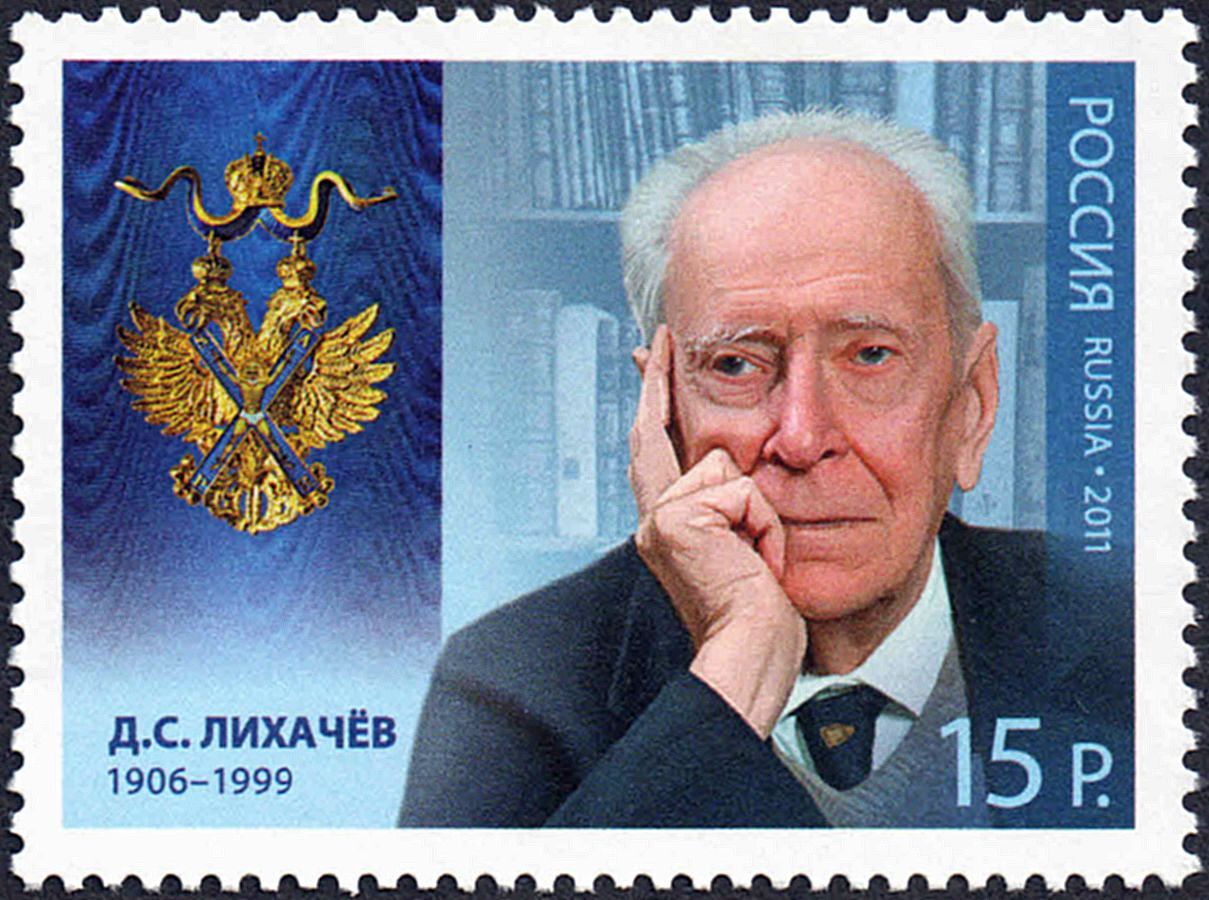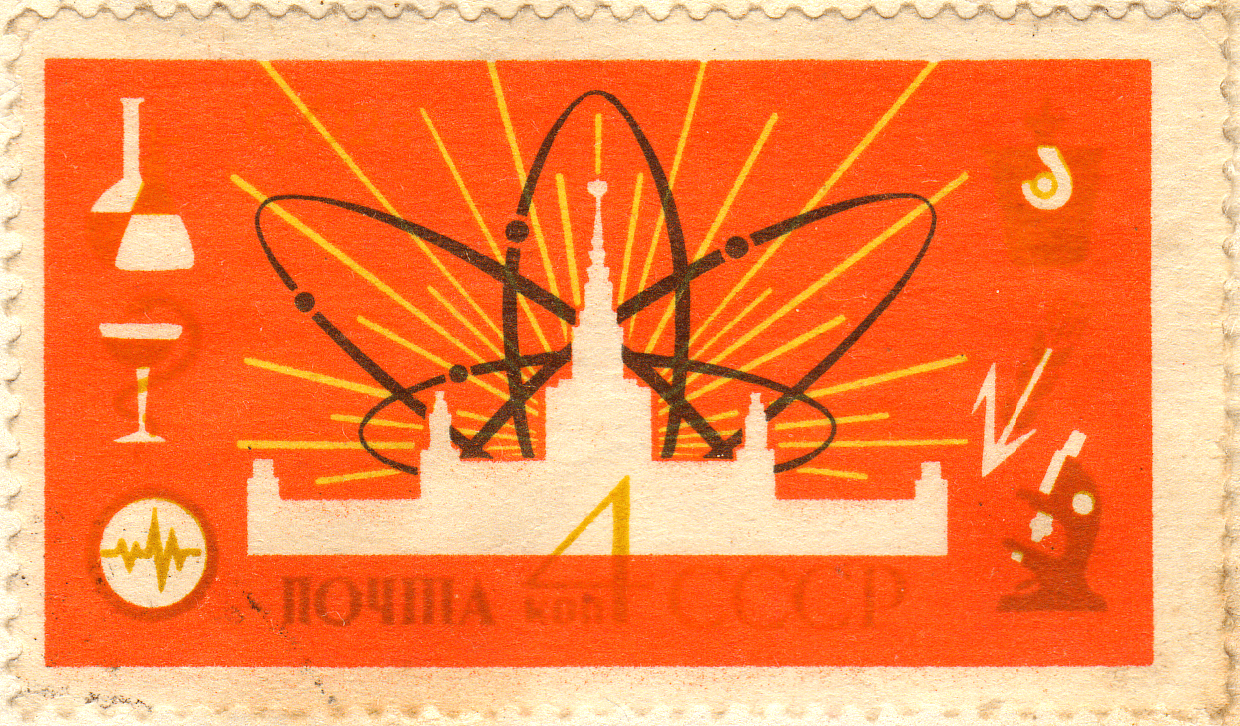|
Sigurd Ottovich Schmidt
Sigurd Ottovich Schmidt (; 15 May 1922 – 22 May 2013) was a Russian historian, ethnographer and teacher. Biography Sigurd Ottovich Schmidt was born on May 15, 1922, in Moscow. His father was the mathematician Otto Schmidt, and his mother was the literary critic Margarita Golosovker. Schmidt graduated from the Faculty of History at the Moscow University in 1944. In 1949, he began teaching at the Moscow Historical Archives Institute (now part of the Russian State University for the Humanities). He received his Doctor of Historical Sciences in 1965 and became an Honorary Doctor RSUH in 1970, attaining the title of 'Professor'. At the same time, starting in 1956, he worked in the Institute of History of Sciences of the USSR (now Institute of Russian History at RAS). From 1968 to 2006 he was Chairman of the Archaeographic Commission at the Academy of Sciences (Commission of the Institute of Slavic Studies RAS for archaeography, archival and related disciplines), after which h ... [...More Info...] [...Related Items...] OR: [Wikipedia] [Google] [Baidu] |
Moscow
Moscow is the Capital city, capital and List of cities and towns in Russia by population, largest city of Russia, standing on the Moskva (river), Moskva River in Central Russia. It has a population estimated at over 13 million residents within the city limits, over 19.1 million residents in the urban area, and over 21.5 million residents in Moscow metropolitan area, its metropolitan area. The city covers an area of , while the urban area covers , and the metropolitan area covers over . Moscow is among the world's List of largest cities, largest cities, being the List of European cities by population within city limits, most populous city entirely in Europe, the largest List of urban areas in Europe, urban and List of metropolitan areas in Europe, metropolitan area in Europe, and the largest city by land area on the European continent. First documented in 1147, Moscow became the capital of the Grand Principality of Moscow, which led the unification of the Russian lan ... [...More Info...] [...Related Items...] OR: [Wikipedia] [Google] [Baidu] |
Archaeographic Commission
The Archaeographic Commission (Археографическая комиссия) was set up in St. Petersburg in 1834 by Platon Shirinsky-Shikhmatov, Nikolay Gerasimovich Ustryalov, Nikolay Ustryalov, and Pavel Stroyev with the aim of publishing historical and ethnographic materials assembled by Stroyev and others in the provinces of Imperial Russia. The commission was affiliated with the imperial ministry of education and was modeled on an earlier commission based in Moscow. Its first major enterprise was the Complete Collection of Russian Chronicles, published from 1841 onward. Regional archaeographical commissions were established in Kiev, Museum of Antiquities in Vilnius#Archaeological and Archaeographic Commissions, Vilna, and Tiflis. The commission spearheaded efforts to obtain foreign sources on Russian history and sent its emissaries in search of Russia-related documents to the major archives of Europe. After Shirinsky-Shikhmatov the commission's presidents included Avraam ... [...More Info...] [...Related Items...] OR: [Wikipedia] [Google] [Baidu] |
Writers From Moscow
A writer is a person who uses written words in different writing styles, genres and techniques to communicate ideas, to inspire feelings and emotions, or to entertain. Writers may develop different forms of writing such as novels, short stories, monographs, travelogues, plays, screenplays, teleplays, songs, and essays as well as reports, educational material, and news articles that may be of interest to the general public. Writers' works are nowadays published across a wide range of media. Skilled writers who are able to use language to express ideas well, often contribute significantly to the cultural content of a society. The term "writer" is also used elsewhere in the arts and music, such as songwriter or a screenwriter, but also a stand-alone "writer" typically refers to the creation of written language. Some writers work from an oral tradition. Writers can produce material across a number of genres, fictional or non-fictional. Other writers use multiple media such ... [...More Info...] [...Related Items...] OR: [Wikipedia] [Google] [Baidu] |
2013 Deaths
This is a list of lists of deaths of notable people, organized by year. New deaths articles are added to their respective month (e.g., Deaths in ) and then linked below. 2025 2024 2023 2022 2021 2020 2019 2018 2017 2016 2015 2014 2013 2012 2011 2010 2009 2008 2007 2006 2005 2004 2003 2002 2001 2000 1999 1998 1997 1996 1995 1994 1993 1992 1991 1990 1989 1988 1987 1986 Earlier years ''Deaths in years earlier than this can usually be found in the main articles of the years.'' See also * Lists of deaths by day * Deaths by year (category) {{DEFAULTSORT:deaths by year ... [...More Info...] [...Related Items...] OR: [Wikipedia] [Google] [Baidu] |
1922 Births
Events January * January 7 – Dáil Éireann (Irish Republic), Dáil Éireann, the parliament of the Irish Republic, ratifies the Anglo-Irish Treaty by 64–57 votes. * January 10 – Arthur Griffith is elected President of Dáil Éireann, the day after Éamon de Valera resigns. * January 11 – The first successful insulin treatment of diabetes is made, by Frederick Banting in Toronto. * January 15 – Michael Collins (Irish leader), Michael Collins becomes Chairman of the Provisional Government of the Irish Free State. * January 26 – Italian forces occupy Misrata, Italian Libya, Libya; the Pacification of Libya, reconquest of Libya begins. February * February 6 ** Pope Pius XI (Achille Ratti) succeeds Pope Benedict XV, to become the 259th pope. ** The Washington Naval Treaty, Five Power Naval Disarmament Treaty is signed between the United States, United Kingdom, Empire of Japan, Japan, French Third Republic, France and Kingdom of Italy, Italy. Japan returns some ... [...More Info...] [...Related Items...] OR: [Wikipedia] [Google] [Baidu] |
Giuseppe D'Amato
Giuseppe D'Amato (born 1965) is an Italian historian, specializing in Russia and the former USSR The Union of Soviet Socialist Republics. (USSR), commonly known as the Soviet Union, was a List of former transcontinental countries#Since 1700, transcontinental country that spanned much of Eurasia from 1922 until Dissolution of the Soviet ..., and a columnist of international politics. Biography After getting a degree in Italy in the 1980s, D'Amato became a scholar of the Russian academician Sigurd Ottovich Schmidt (in Russian Шмидт, Сигурд Оттович) at Moscow's Historical-Archive Institute ( Russian State University for the Humanities) in the 1990s. He got a Ph.D. in history. Writing D'Amato wrote a book about Italian travellers to Russia in the 15th -16th centuries and studied Russian-Italian relationships. Some of his articles have been published in languages other than Italian. He wrote three books respectively on the subjects of the break-up of US ... [...More Info...] [...Related Items...] OR: [Wikipedia] [Google] [Baidu] |
Dmitry Likhachev
Dmitry Sergeyevich Likhachev (, also spelled ''Dmitrii Likhachev'' or ''Dmitry Likhachov''; – 30 September 1999) was a Russian medievalist, linguist, and a former inmate of Gulag. During his lifetime, Likhachev was considered the world's foremost scholar of the Old Russian language and its literature. He was revered as "the last of old St Petersburgers", and as "a guardian of national culture". Due to his high profile as a Soviet dissident writer, social critic, and activist during his later life, Likhachev was often referred to as "Russia's conscience". Life and career Childhood and concentration camp (1906 – 1931) Dmitry Likhachev was born in Saint Petersburg. From his early childhood he had a passion for literature, even though his parents did not approve of this interest. In a 1987 interview with David Remnick, Likhachev recalled how he had, "watched the February and October Revolutions from his window."David Remnick (1994), ''Lenin's Tomb: The Last Days of the Sov ... [...More Info...] [...Related Items...] OR: [Wikipedia] [Google] [Baidu] |
Moscow University
Moscow State University (MSU), officially M. V. Lomonosov Moscow State University,. is a public research university in Moscow, Russia. The university includes 15 research institutes, 43 faculties, more than 300 departments, and six branches. Alumni of the university include past leaders of the Soviet Union and other governments. As of 2019, 13 Nobel laureates, six Fields Medal winners, and one Turing Award winner were affiliated with the university. History Imperial Moscow University Ivan Shuvalov and Mikhail Lomonosov promoted the idea of a university in Moscow, and Russian Empress Elizabeth decreed its establishment on . The first lectures were given on . Saint Petersburg State University and MSU each claim to be Russia's oldest university. Though Moscow State University was founded in 1755, St. Petersburg which has had a continuous existence as a "university" since 1819 sees itself as the successor of an academy established on in 1724, by a decree of Peter the Great ... [...More Info...] [...Related Items...] OR: [Wikipedia] [Google] [Baidu] |
Russian SFSR
The Russian Soviet Federative Socialist Republic (Russian SFSR or RSFSR), previously known as the Russian Socialist Federative Soviet Republic and the Russian Soviet Republic, and unofficially as Soviet Russia,Declaration of Rights of the laboring and exploited people, article I. was a socialist state from 1917 to 1922, and afterwards the largest and most populous constituent republic of the Soviet Union (USSR) from 1922 to 1991, until becoming a sovereign part of the Soviet Union with priority of Russian laws over Union-level legislation in 1990 and 1991, the last two years of the existence of the USSR.The Free Dictionary Russian Soviet Federated Socialist Republic . Encyclopedia2.thefreedictionary.com. Retrieved on 22 June 2011. The Russ ... [...More Info...] [...Related Items...] OR: [Wikipedia] [Google] [Baidu] |
Otto Schmidt
Otto Yulyevich Shmidt (born Otto Friedrich Julius Schmidt; – 7 September 1956), better known as Otto Schmidt, was a Soviet scientist, mathematician, astronomer, geophysicist, statesman, and academician. Biography He was born in the town of Mogilev in the Russian Empire, in what is now Belarus. His father was a descendant of German settlers in Courland, while his mother was a Latvian. In 1912 and 1913, while in university, he published a number of mathematical works on group theory which laid foundation for Krull–Schmidt theorem. In 1913, Schmidt married Vera Yanitskaia and graduated from the Saint Vladimir Imperial University of Kiev, where he worked as a privat-docent starting from 1916. In 1918 he became a member of the Russian Social Democratic Labour Party (internationallists) which was later dissolved in to the Russian Communist Party. After the October Revolution of 1917, he was a board member at several People's Commissariats ( narkomats)such as Narkomprod ... [...More Info...] [...Related Items...] OR: [Wikipedia] [Google] [Baidu] |






